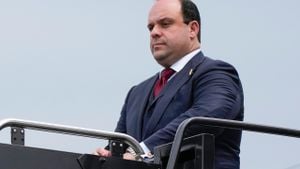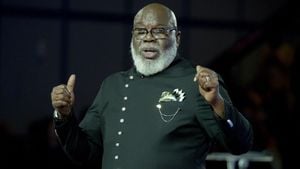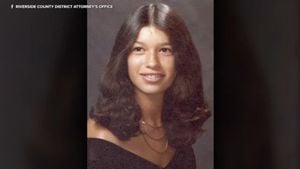Hockey Canada is tackling serious cultural challenges within the sport through its second annual Beyond the Boards summit, which took place over two days in Ottawa. Key issues under discussion included sexism, gender-based violence, homophobia, and transphobia, all of which have plagued the hockey community. At the helm of this conversation was Normand Hector, the summit's keynote speaker and advocate for inclusion and respect within the sport.
Hector, who identifies as a gay Black man from Saint John, New Brunswick, emphasized the duality of playing hockey with intensity and maintaining respect for diversity. His background and experiences have positioned him as a thought leader, particularly on topics surrounding healthy sports culture. He performed as “Normani” at events like the 2022 Memorial Cup and has been instrumental in seminars aimed at fostering respect within hockey.
Reflecting on his role, Hector stated, "I come from a very diverse background. I’m very blessed and very fortunate to have this opportunity to educate, but also try to change mindsets of people within a sport who have never had somebody like me in front of them." His comments highlight the necessity of representation and dialogue within the men’s elite hockey scene.
The impetus for such discussions stems from Hockey Canada’s recent history of scandals, most notedly allegations of sexual assault involving the national junior men’s hockey team at a gala in London, Ontario, back in 2018. While these allegations are still pending resolution and five players will face trial next year, the organization has been under tremendous scrutiny. Revelations from 2022 indicating the misuse of minor hockey dues to settle lawsuits connected to similar cases only fueled public disdain and led to significant financial impacts, including lost sponsorships.
During the first summit held in Calgary back in September 2023, leaders tackled the pervasive issue of toxic masculinity within elite men’s hockey. This inaugural meeting was part of Hockey Canada’s effort to initiate cultural reform, coinciding with Katherine Henderson’s first week as president and CEO of the organization.
Henderson commented, "Last year’s event was eye-opening for all of us and reinforced there is still so much work to be done, which is a challenge we take very seriously." The Ottawa summit drew notable names from various sports, including Brian Burke, former president of the Calgary Flames, and Mark Tewksbury, Olympic gold medalist, who shared their insights on creating inclusive environments.
This year’s summit was not just about discussion; it sought to engage participants through workshops and personal stories, highlighting the need for radical change within hockey culture. Participants were prompted to reflect on their experiences and the collective responsibility they share to shift the narrative surrounding hockey.
Hockey Canada recognizes the necessity of addressing these cultural issues to rebuild trust with the communities it serves. The organization has pledged to implement actionable steps drawn from the summit discussions, focusing on education and changing perceptions about what it means to be involved in hockey.
The issues of racism, sexism, and discrimination aren't just limited to allegations of misconduct; they're symptomatic of a broader culture within the sport needing intensive focus and change. Some former players and advocates for inclusion have applauded these summits, seeing them as much-needed steps toward accountability and transformation.
Hockey Canada has also sought guidance from various advocacy groups to help facilitate concrete changes. For example, they have engaged with organizations specializing in gender equality and anti-violence programs, ensuring the strategies derived from these summits resonate with proven methodologies and practices.
Hector’s role extends beyond merely speaking at conferences; he engages directly with players, coaches, and families. His approach is not only about sharing his own story but also amplifying the voices of others who push for progress within the sport. He believes it’s important for athletes and stakeholders to understand the real-life impacts of entrenched cultural issues.
He added, "I want to share the powerful stories from players, coaches, and families helping shape hockey today." This sentiment underlies the importance of bringing diverse stories to the forefront, showing the multifaceted nature of experiences within the sport.
The result of these conversations and subsequent actions could potentially reshape the future of hockey culture, where respect, inclusion, and support for all players, regardless of their identity, becomes the norm rather than the exception. Summit participants were tasked not just with reflection but with the responsibility to champion change moving forward.
The conversation initiated at the Beyond the Boards summit is integral to fostering an environment where all players feel safe and respected. The hope is to create spaces within not just hockey, but all sports, where diversity is celebrated, not just tolerated. The ultimate question remains: will these discussions translate to meaningful change, making hockey not just Canada’s favorite pastime but also its most welcoming?



